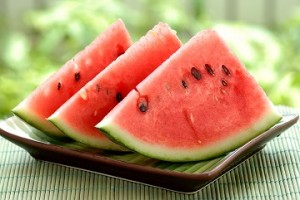
More evidence that low-calorie sweeteners are bad for your health
Studies show that artificial sweeteners can raise the risk of hypertension, metabolic syndrome, type 2 diabetes and heart disease, including stroke.

Natural Health News — Next time you are shopping for food, be sure to pick up a watermelon – or two. It could save your life.
A new study by Florida State University Associate Professor Arturo Figueroa, published in the American Journal of Hypertension, found that watermelon contains substances that cold help reduce blood pressure and its related health problems.
Figueroa has conducted multiple studies on the benefits of watermelon. In the past, he examined how it impacts post-menopausal women’s arterial function and the blood pressure readings of adults with pre-hypertension.
So the team decided to investigate whether watermelon – or more specifically the amino acids it contains – could also help lower the risk of stroke or heart attack due to environmental stress.
More people die of heart attacks in cold weather. That’s because the stress of the cold temperatures causes blood pressure to increase and the heart has to work harder to pump blood into the aorta, leading to less blood flow to the heart.
Thus, people with obesity and high blood pressure face a higher risk for stroke or heart attack when exposed to the cold either during the winter or in rooms with low temperatures.
Warm weather fruit relieves cold weather stress
The 12-week study focused on 13 middle-aged, obese men and women who also suffered from high blood pressure. To simulate cold weather conditions, one hand of the subject was dipped into 39° F ( 4° C) water while the scientists took their blood pressure and other vital measurements.
Meanwhile, the group was divided into two. For the first six weeks, one group was given four grams of the amino acid L-citrulline and two grams of L-arginine per day, both from watermelon extract. The other group was given a placebo for 6 weeks.
Then, they switched for the second six weeks.
Participants also had to refrain from taking any medication for blood pressure or making any significant changes in their lifestyle, particularly related to diet and exercise, during the study.
The results showed that consuming watermelon had a positive impact on aortic blood pressure and other vascular parameters.
Notably, study participants showed improvements in blood pressure and cardiac stress while both at rest and while they were exposed to the cold water.
“The pressure on the aorta and on the heart decreased after consuming watermelon extract,” Figueroa said. “That means less overload to the heart, so the heart is going to work easily during a stressful situation such as cold exposure.”

Please subscribe me to your newsletter mailing list. I have read the
privacy statement